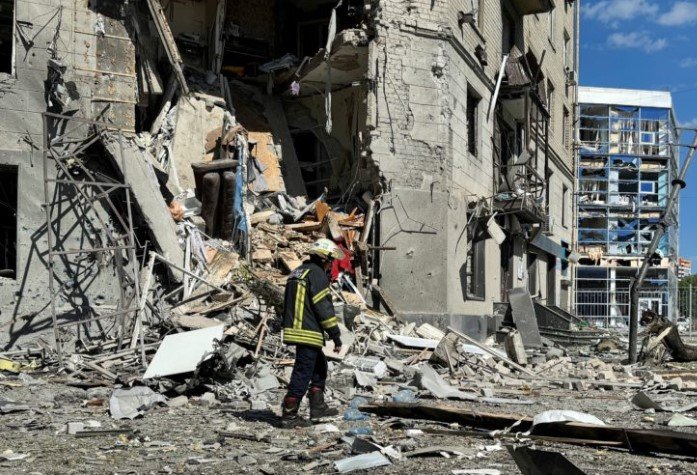In a dramatic escalation of the ongoing conflict, Ukraine has evacuated approximately 8,000 residents from the Kharkiv region due to intensified Russian military operations. The situation in Kharkiv has become increasingly dire, with Russian forces claiming advances in multiple directions. This development marks a significant moment in the war, highlighting the severe humanitarian impact and the strategic maneuvers by both sides.
Escalation in Kharkiv
The Kharkiv region has seen a surge in military activity, with Russian forces making significant advances. Ukrainian emergency services have been working tirelessly to evacuate civilians from the most affected areas. The evacuation process has been challenging, with many residents reluctant to leave their homes despite the imminent danger. The Ukrainian government has emphasized the importance of these evacuations to ensure the safety of its citizens.
The intensity of the fighting in Kharkiv has led to widespread destruction. Residential areas, schools, and medical facilities have been heavily damaged. The Ukrainian military has been engaged in fierce battles to repel the advancing Russian troops. Despite the challenging circumstances, Ukrainian forces have managed to hold their ground in several key locations, preventing further Russian incursions.

The humanitarian crisis in Kharkiv is worsening. Thousands of displaced residents are in urgent need of shelter, food, and medical assistance. International aid organizations are mobilizing resources to support the evacuees, but the scale of the crisis is overwhelming. The Ukrainian government is calling for increased international support to address the growing needs of the affected population.
Russian Military Strategy
Russia’s recent military maneuvers in Kharkiv are part of a broader strategy to gain control over key regions in Ukraine. The Russian Defense Ministry has reported significant territorial gains, including the capture of several settlements. These advances are seen as a strategic move to strengthen Russia’s position in the ongoing conflict and to exert pressure on the Ukrainian government.
The Russian military has employed a combination of ground assaults and air strikes to achieve its objectives. The use of heavy artillery and missile attacks has caused extensive damage to infrastructure and civilian areas. Despite international condemnation, Russia continues to pursue its military goals with relentless determination.
The capture of strategic locations in Kharkiv is crucial for Russia’s broader military objectives. Control over these areas would provide a significant advantage in terms of logistics and supply lines. It would also serve as a psychological blow to the Ukrainian resistance, potentially weakening their resolve and morale.
International Response
The international community has reacted strongly to the latest developments in Kharkiv. Several countries have condemned Russia’s actions and called for an immediate ceasefire. The United Nations has expressed deep concern over the humanitarian impact of the conflict and has urged both sides to prioritize the protection of civilians.
Western nations have pledged additional support to Ukraine in response to the escalating crisis. The United States has announced a new package of military aid, including advanced weaponry and logistical support. European countries are also stepping up their assistance, providing financial aid and humanitarian relief to the affected regions.
Diplomatic efforts to resolve the conflict are ongoing. High-level talks between Ukraine and Russia, mediated by international actors, are aimed at finding a peaceful resolution. However, the prospects for a negotiated settlement remain uncertain, given the entrenched positions of both sides and the complexity of the issues at stake.
The evacuation of 8,000 residents from Kharkiv underscores the severe humanitarian impact of the ongoing conflict in Ukraine. The intensified Russian military operations and the strategic significance of the Kharkiv region highlight the complexities of the war. The international community’s response and the ongoing diplomatic efforts will play a crucial role in shaping the future trajectory of this conflict.
